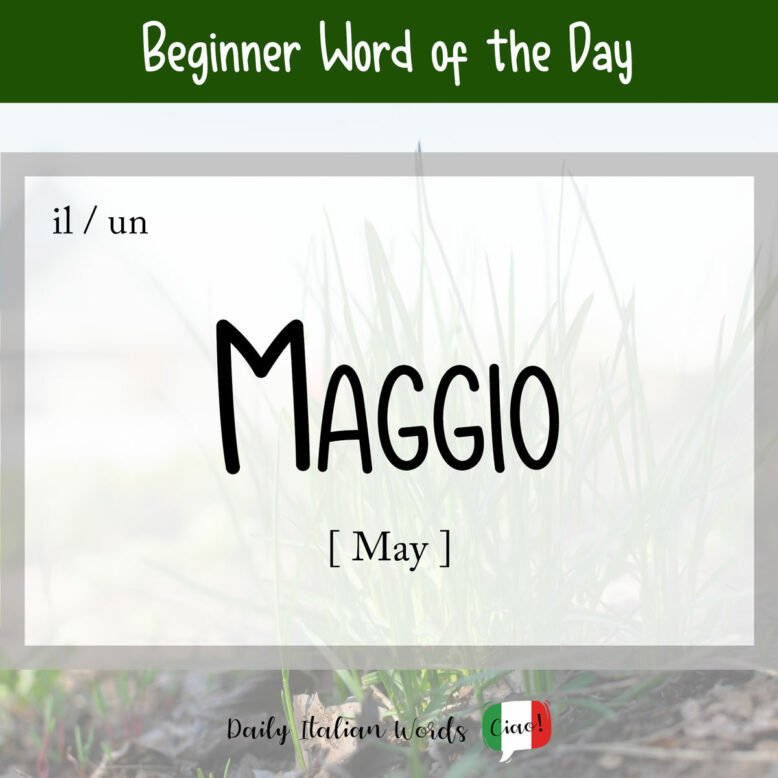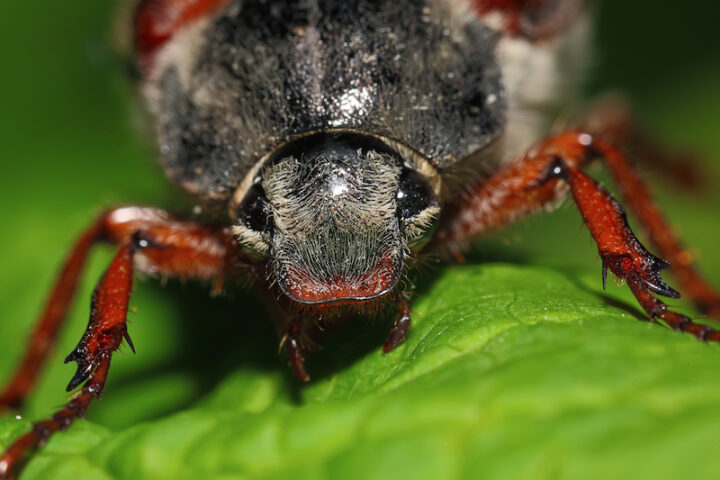It’s difficult to believe that we are already well into the month of May, known as maggio in Italian.

Maggio is the fifth month of the year (quinto mese dell’anno) according to the Julian and Gregorian calendars. As is the case with all months of the year, maggio isn’t capitalised in Italian as it is in English.
Ho prenotato una vacanza in Italia per maggio.
I’ve booked a vacation to Italy in May.
The star sign (segno zodiacale) for those born in maggio is either Toro (Taurus) if you were born between May 1st and May 20th or Gemelli (Gemini) if you were born after the 20th.
Did you know that?
The words May and maggio come from the Latin term for the month, Maius. It supposedly takes its name from the Greek goddess Maia, mother of Hermes and the oldest of the seven daughters of the titan Atlas and the sea-nymph Pleione.

I’ve always considered maggio to be one of the most pleasant months of the year to visit Italy, with spring blossoming in all its colours and the longer hours of daylight. By planning to visit at this time of year, you can also avoid the intense heat and humidity that accompany the summer months.
Calendimaggio
In Italy, the Calendimaggio, which means Calende di Maggio (Calends of May), is a celebration that occurs every year to welcome the arrival of spring. It is an ancient tradition that is still very much alive today in various Italian regions and cities.
The ceremony is built around an almsgiving where the Maggerini (or Maggianti) receive donations from the people they visit in their homes, who then sing auspicious verses to them in return.
In the Tuscan tradition, maggio is a blossoming twig that young men put on the windowsill of the women they love on the night of Calendimaggio.
Il Maggiolino
The maggiolino, known as a cockchafer, doodlebug or May bug in English, is the name given to any of the European beetles of the genus Melolontha. Adults tend to appear in May (hence the name) and live for about five to seven weeks. Once abundant across most of Europe, they are now experiencing reduced numbers due to the use of pesticides, and have even been eradicated in some regions.

It was after this real life beetle that Volkswagen named its classic beetle car, the Maggiolino.
Heather Broster is a graduate with honours in linguistics from the University of Western Ontario. She is an aspiring polyglot, proficient in English and Italian, as well as Japanese, Welsh, and French to varying degrees of fluency. Originally from Toronto, Heather has resided in various countries, notably Italy for a period of six years. Her primary focus lies in the fields of language acquisition, education, and bilingual instruction.


